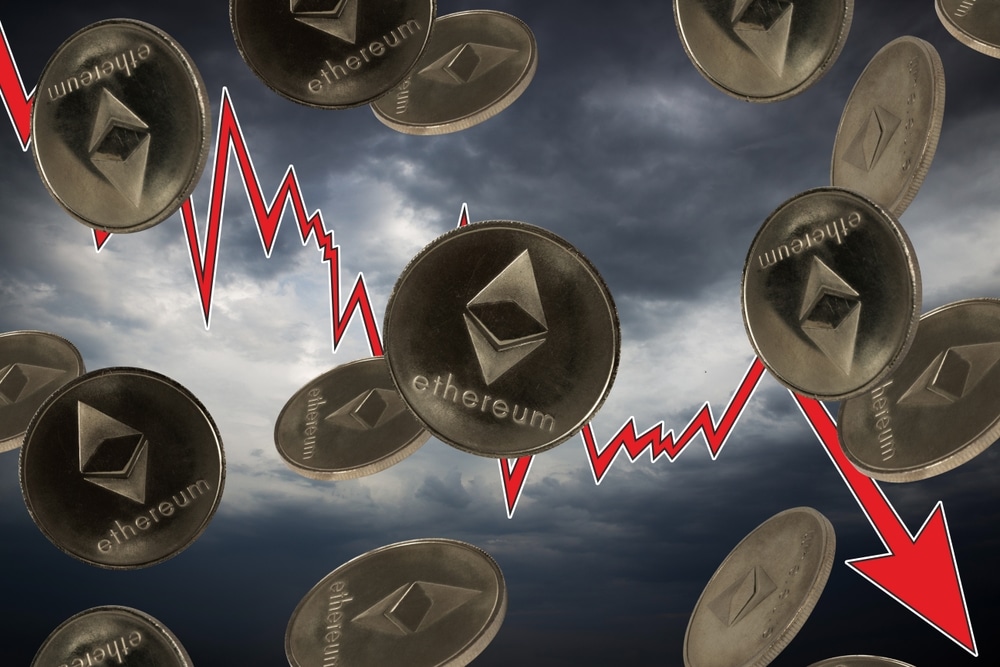The inherent volatility of the cryptocurrency market often causes unexpected developments that impact the entire industry. Recently, such events have attracted the attention of investors around the world. In a surprising move, the Ethereum whale chose to liquidate all of his ETH holdings, incurring significant losses amounting to $6.5 million. This sudden action raised concerns within the crypto community about a potential decline in Ethereum's price trajectory and sparked discussion and analysis among market participants.
Unprecedented Ethereum whale sale and market analysis
A prominent crypto whale has reportedly chosen to sell its entire Ethereum (ETH) holding, worth 6,714 ETH, for a unit price of $2,903. This strategic move resulted in significant losses totaling $6.45 million. Additionally, market indicators such as the Relative Strength Index (RSI) have consistently trended below the midpoint, indicating waning investor interest in altcoins. Additionally, the major averages are showing a bearish curve, suggesting a pessimistic price outlook in the near term.
As of today, Ethereum (ETH) is trading at $2,902.42 with a 24-hour trading volume of $10.1 billion. The coin fell by 4.07% in the past 24 hours, fluctuating between $2,935.95 and $2,894.15. Ethereum has a live market cap of $348.6 billion. Market analysts predict that if the price crosses the key resistance level at $3,017, the bullish momentum could resume and break the descending channel pattern. However, if the bears continue to dominate, the price could fall towards this month's low of $2,650.
Also read: Magic Eden announces new TypeScript to power Runes protocol
Factors influencing Ethereum’s downturn and future outlook
Ethereum, the leading altcoin, has been in a descending channel pattern since mid-March, indicating a decline in investor enthusiasm. Additionally, the delay in the approval of the Spot Ethereum ETF by the Securities and Exchange Commission (SEC) has emerged as a prominent factor contributing to the coin’s bearish price action.
Additionally, the recently introduced Dencun hard fork on March 13, 2024 was aimed at mitigating soaring transaction fees and enhancing the scalability of the platform. Although transaction fees have been significantly reduced and scalability has improved, this upgrade has not been able to boost the price of Ethereum.
Instead, the coin faced rejection after the upgrade, causing a steep decline that continues to this day. This scenario has led market participants to wonder whether this upgrade is the catalyst for Ethereum's ongoing downturn, further deepening the intrigue surrounding the coin's future trajectory.
Also read: Spot Ethereum ETF applicant complies with U.S. Securities and Exchange Commission, will ETH price rebound?

